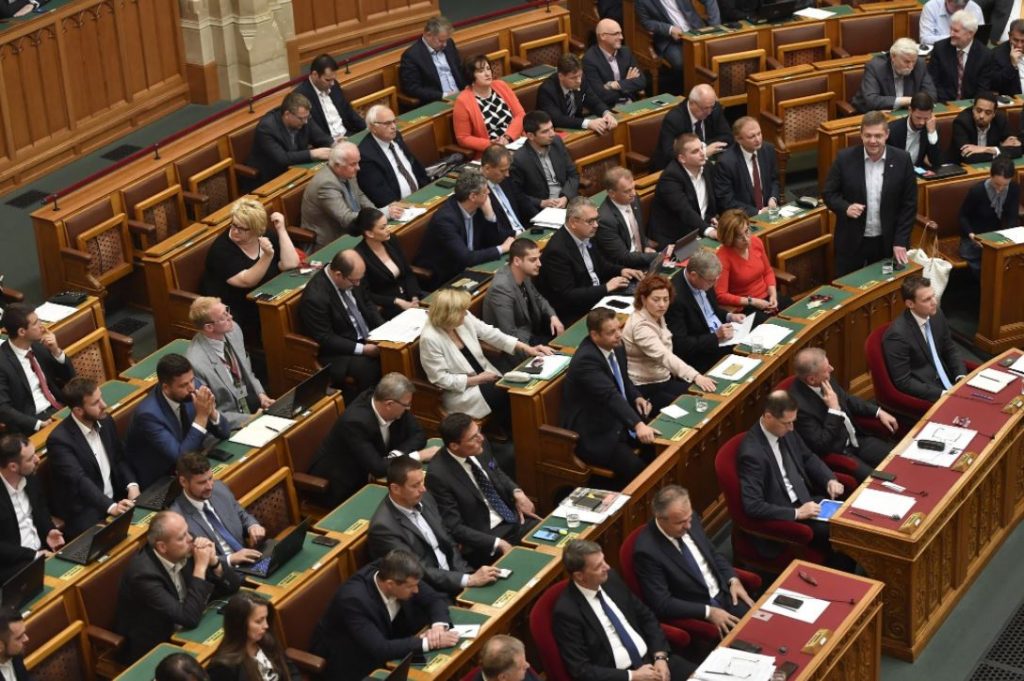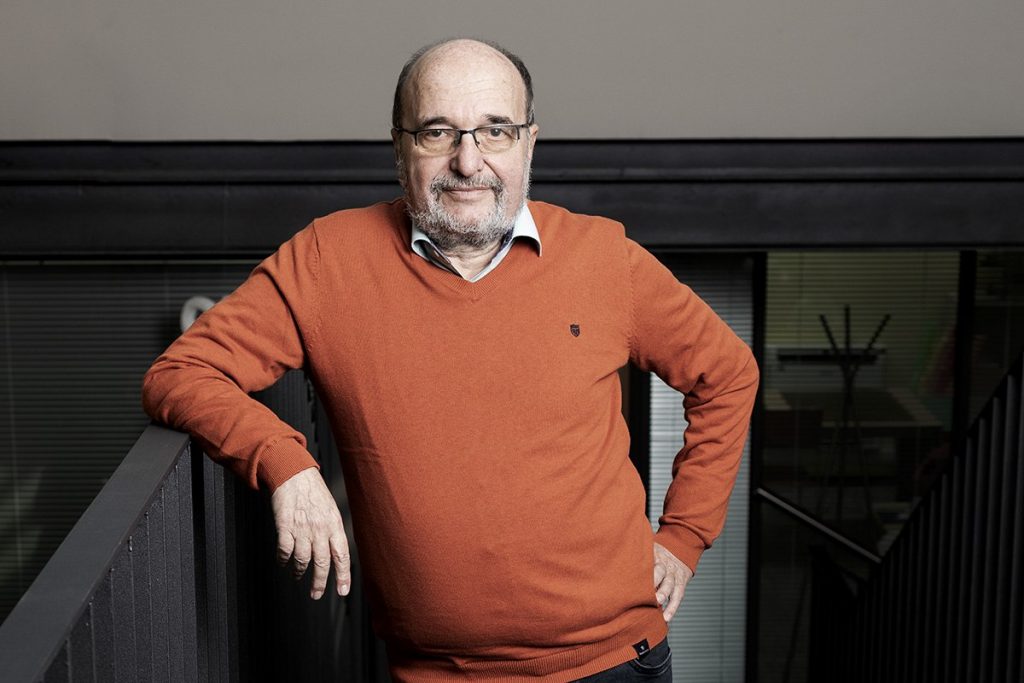Gábor Bojár, founder of Graphisoft, reveals how startup firms can keep young talents, why governments can never be a good customer and how it was to establish a firm in the Eastern Block during the 1980s. The entrepreneur also talks about “good products”, public procurement and crony capitalism in Hungary, him being a liberal, and his political preferences for his native country’s upcoming parliamentary elections.
Host: Zoltán Kész
Hungary’s business environment has undergone a serious change in the last decade. Public procurements, for a certain circle, have started to be a lucrative business opportunity. Ever since, economic success can almost be only achieved due to government assignments. “If you want to be a successful businessman, only you need is someone who knows public procurement,” the head of Hungarian software company Graphisoft Gábor Bojár said to CEA.
Mr Bojár always kept his design software company away from public procurement. Why so? “Good products” need two parents. In case one of them is missing, there can be no talk of a “good product”. “You need a demanding author, and a demanding customer. The government can never be a good customer,” he said.
The government is not convinced of a good product, but cares on how to administer its own choice. Although, public procurement is unavoidable, a growing number of public procurements threatens to kill real entrepreneurship. Public procurements can never be as market-oriented as the market-oriented customers.
In Hungary, the situation is more complex. A growing number of public procurements is mixed with crony capitalism. Due to the fact that the winner is decided before a public procurement is published, a big number of economic actors spare the efforts of the procedure and prefer to stay away from it. “This is killing the competitive spirit. Without it, there is no effective capitalism,” Mr Bojár, a staunch capitalist, claimed.
Business in the Eastern Block
Common belief is that entrepreneurs had a hard time to establish a firm during Hungary’s socialist past. Despite the less-developed circumstances of entrepreneurship in the 1980s, it was “much easier” than today. The difference: the access to talents.

Photo credit: Graphisoft
Due to the lack of competition in the 1980s, real talents were up for grabs as they basically didn’t have another choice. However, passports were not a matter of course back then in Hungary, every Graphisoft employee, by being capable of exporting products the company, had a service passport in 1983 and could travel abroad freely.
“To have access to capital, it was not possible, to have access to the market, it wasn’t easy, to have access to technology, it wasn’t easy, but to access to talents, it was easy. I was very lucky to be able to start my firm in the early 80s.” he said.
Later, with the democratic transition, the circumstances changed completely. Suddenly, capital and technology were available, but on the contrary, there was a clear lack of talents. With the political change in 1989, real talents could easily leave for the Silicon Valley in California. Keeping talented persons at home became a major challenge, also for Graphisoft. Therefore, the company decided to invest in talents and establish the Silicon-Valley-like Graphisoft park. “When they come for a job interview, their feelings should be that I would like to work here.”
Meritocracy is a cornerstone for economic success. On the other hand, crony capitalism, clearly lacking the meritocratic characteristics, poses a danger for the economy.
“The real damage is not the higher cost and the not so good quality, but the killing of the entrepreneurial spirit, the competitive spirit, killing the talents who want to create great things,” warned Mr Bojár.
Demanding citizens
The founder of Graphisoft is a harsh critic of his country’s government, and describes Hungary’s political landscape as “terrible”. He encourages citizens to openly criticize politicians, because, in his opinion, good governance can only be achieved if taxpayers, being the customers, are showing a demanding nature.

“I want to be a demanding customer of politicians. This is how I can contribute to a better political life and political class,” he stated.
As an advocate for a united opposition, he demands honesty, transparency, the opportunity for a real competition, and investing in education from opposition forces.
“If we invested more in education, Hungary could be a very prospering country.”
Cowboy on the prairie
In the past, Mr Bojár was a member of the Governing Body of the European Institute of Technology. The institution’s goal was to provide the necessary capital for European companies. Despite his involvement with the institute, he disagrees with its policy.
One major problem globally is the over-supply of capital. It’s less complicated to get capital than getting the money from the customers. “Spending money on capital on investing in companies is the worst thing the EU can do.”

Photo credit: Patrick Nouhailler, CC BY-SA 2.0
Europe shouldn’t kill the entrepreneurial spirit, but, similar to the US, try to nurture it. America’s entrepreneurial spirit has existed for 200 years, and “if you are a cowboy on the prairie, you have to survive alone.”
Investing in education, like Finland and Singapore have done, is one of the keys for the solution. In order to achieve that, taxpayer’s money should be diverted more ponderously towards that goal. “This is the best help for the entrepreneurship as well. Not giving them money. They should get their money from the customers, or private investors.”
Infrastructure and health care are other areas where investment should be forced. “We should invest anywhere where the results belong to the public, but don’t invest in companies, because companies will own the results.”
Beating Viktor Orbán
Talking about politics, Mr Bojár is cautious regarding the Hungarian opposition’s chances at next year’s parliamentary election. With Fidesz owning “almost” the entire media, the stated-owned press being controlled by the party, and the constant use of populist slogans, the big support of the ruling party should come as no surprise.
The changing of the election system, gerrymandering, and the absolute control of the institutions responsible for the election administration work in favor of Fidesz, and make it a “very difficult challenge” to beat Viktor Orbán’s party.

Photo credit: TIbor Illyés, MTI
Before facing Fidesz at next year’s vote, the united opposition parties will hold an American-style pre-election primary in order to find the most competitive candidates against the ruling party. He fully supports the idea of the procedure. The goal of the PM primaries should be to find the candidate who “can beat Viktor Orbán”. In his opinion, DK candidate Klára Dobrev is “probably the best” candidate, but “she seems to have the least chance to beat the prime minister”.
Whatever the outcome of the primary in his constituency, Mr Bojár will not oppose its results. Even, if a Jobbik candidate, once a far-right party, wins the primary. “This Jobbik is not the same as it was a couple of years ago,” he said.
“If the Jobbik guy can beat Orbán, I will vote for him. If Karácsony can beat him, I will vote for him. I don’t know whether Klára Dobrev could win, but I believe she could be a good prime minister.”
Cover photo credit: Graphisoft

Gábor Bojár is an entrepreneur and founder of the Budapest-based design software company Graphisoft. He started his professional career at the Hungarian State Geophysics Institute in the late 1970s. In 1980, he left and began to work as a programmer abroad. Graphisoft wrote a software for Apple Lisa, which didn’t succeed economically, but kept the company alive throughout the 1980s. He had to smuggle four Macintosh into Hungary and was supported with cash by Steve Jobs.
Photo credit: Végh László, Magyar Hang



